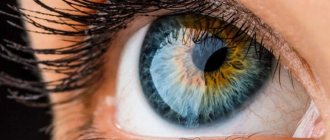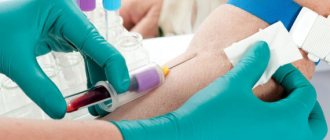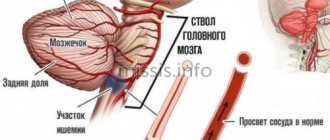Medical information is reliable Checked by Shaidullin Renat Flyurovich
Depression is a disease of our time, as the disorder is called at the everyday level. Every day the number of recorded cases is growing; according to statistics, about 20% of the population of countries with a good standard of living suffers from it. The disease is serious; when the first signs appear, you should contact a specialist. Treatment of depression will help you return to normal life, get rid of apathy and bad mood, and increase your ability to work.
The difficulty of therapy is that patients are very little aware of the causes of the disorder and its consequences. Prolonged mental and physical illness is often mistaken for bad character, whims, and constant dissatisfaction, so they do not pay attention to it. The condition does not go away on its own; you need the help of a specialist. At Dr. Isaev’s Clinic, the patient is not only prescribed a therapeutic course, but also relapse prevention is carried out, information is provided about the preconditions for the disorder and ways to avoid them.
Signs of Depression
Under certain circumstances, this condition can occur in every person, regardless of gender, age and social status. Depression is a type of mental illness accompanied by a persistent decrease in mood. A person remains in this state for more than two weeks continuously; he experiences a decrease in memory and concentration, loss of interest in life, and retardation of movements. In the absence of timely treatment, the patient loses the ability to live and work fully for many months and even years, and the possibility of attempting to commit suicide cannot be ruled out.
Depression causes
According to statistics, about 90% of diagnoses are made to people who are in a state of chronic stress or experiencing acute psychological trauma. The body cannot cope with this influence of external factors on its own, the psyche fails, depressive episodes are a kind of defensive reaction.
Conditions arising due to severe psychological trauma are considered reactive. They can be triggered by the following events in the patient’s life:
- disability due to health and absence of serious illnesses;
- detection of a malignant tumor;
- conflicts at work, constant tension in relationships with colleagues;
- serious illness of a close relative;
- death of a loved one;
- divorce from your beloved spouse;
- retirement;
- rapid decline in financial levels;
- moving to another city and other factors that can be a real shock for a person.
Depression is not always formed on the basis of negative events. Sometimes the disease occurs when an important life goal is achieved, when a person experiences great success. The patient gets what he wanted. He suddenly loses the meaning of life, he no longer needs to make every effort for a specific result. The situation is aggravated if there are no other life goals at this moment.
A separate category includes depressive neurosis, which develops against a background of constant stress. In this case, it is not always possible to establish the specific cause that became the trigger for the pathology. The patient describes his life as a chain of constantly recurring failures that haunt him every day.
A depressive state of the psychogenic type is more typical for women, while older people suffer from the disease more often than young people. In our society, there are two extreme poles of financial well-being - poverty and wealth. This social scale causes a person to feel dissatisfied with himself if he constantly approaches the first category.
Additional provoking factors will be:
- pessimistic outlook on life;
- low self-esteem, constant self-flagellation;
- loss of parents, loved ones, friends;
- emotional violence against a person;
- physical aggression that the child experienced at an early age;
- predisposition to drug addiction and alcoholism;
- lack of support from others, their indifference towards the person.
Each of these factors in itself is not dangerous; if desired, a person can easily ignore it or seek help from a psychotherapist. If there are several of them, the situation becomes more complicated, the experiences become more intense and acute. In this case, drug treatment may be required.
For example, in a teenager, the period of growing up is associated with intensive growth of all organs and systems; pregnancy and menopause in women are accompanied by hormonal storms. This is fertile ground for the development of a melancholic mood and ever-increasing dissatisfaction with oneself. During these periods, experiences take on a negative connotation; the world around often seems hostile and indifferent.
Organic brain lesions, as well as physical diseases, are classified into a separate category. Cerebrovascular accidents, strokes and heart attacks, traumatic brain injuries, coronary heart disease, and stomach ulcers are also among the sources of depression listed by experts. Against the backdrop of the development of such diseases, depression manifests itself clearly and clearly.
Antidepressants
Amitriptyline, a tricyclic antidepressant with a pronounced sedative (calming) effect, remains a powerful and fast-acting drug for depression. It is convenient in that it can also be used by injection in the form of droppers and injections.
Also included in the group of tricyclic antidepressants are imipramine, doxepin, mianserin, trazodone and lofepramine. They are usually well tolerated, have a pronounced therapeutic effect, and doctors have accumulated experience in their use for various mental conditions.
There is a separate class of tetracyclic antidepressants. They differ somewhat in action. Thus, lerivon has a longer duration of action and a good hypnotic effect.
The second popular group of antidepressants are MAO inhibitors (monoamine oxidase). This large group of drugs, unfortunately, has become less widespread due to more pronounced side effects, elimination through the liver in almost 100% form, unwanted interactions with other medications and a special diet that excludes the consumption of cheese, liver and alcohol. But moclobemide can be prescribed as the medicine of choice, imipramine can be prescribed for senile (senile) depression, selegiline is used for Parkinson’s disease. They have a good stimulating effect and can activate an elderly patient. Iprazide is a selective representative of this group with a powerful antidepressant effect. But now it is rarely used due to possible undesirable effects and long-term presence in the patient’s body.
SSRIs for depression
Selective serotonin reuptake inhibitors are the latest generation antidepressants. They have good anti-anxiety properties, stabilize mood and almost do not cause drowsiness. Most drugs in this group are well tolerated, there is a large selection of drugs - you can choose a drug for each patient: fluoxetine, escitalopram, paroxetine, sertraline and many others. The mechanism of antidepressant action is based on blocking the uptake of serotonin in the chain of transmission from the nerve to the blood. Thus, it is preserved in a free form and replenishes the deficiency of serotonin in the body. Some representatives of this class have the same effect in relation to dopamine and norepinephrine, which also has a beneficial effect on maintaining mental balance under stress, when the amount of these mediators rapidly decreases.
Antidepressants are now the most popular medications for a wide variety of mental and physical illnesses. They are able to relieve certain types of pain (for example, migraine). They are often prescribed for psychosomatic diseases: hypertension, gastric ulcer, irritable bowel syndrome. Treatment of fears, anxiety, obsessive-compulsive disorder, anorexia/bulimia and many other diseases occurs with the addition of an antidepressant to the drug regimen.
In view of this, people taking antidepressants have many questions about their use. Let's try to answer at least some of them.
Depression symptoms
For each person, signs of depression can manifest themselves differently, it all depends on the stage and form of the pathology. Symptoms occur at different levels, affecting all aspects of the emotional sphere and behavioral reactions of the patient.
Emotional manifestation:
- deep depression is accompanied by a loss of the ability to experience simple human feelings (anger, joy, surprise, fear);
- there is no interest in surrounding events and people;
- those activities that previously evoked pleasant emotions are of no interest to the patient at all;
- a person is dissatisfied with himself, his appearance;
- lack of self-confidence, low self-esteem;
- constant feeling of guilt, even if the objective reason for this is not determined;
- the patient often blames himself for everything, without necessarily saying it out loud;
- increased irritability, nervousness;
- depressed and depressed mood;
- often falls into despair;
- the patient is characterized by melancholy and suffering;
- the feeling of internal tension increases;
- a subconscious expectation of trouble arises;
- increased anxiety even in the absence of any reason.
Fears about the health of loved ones are constantly present in depressed patients. They understand that they cannot do or change anything in this situation. Anxiety is also associated with fears of appearing stupid or ineffective in the eyes of the public. Going to a psychiatric clinic is the first step on the path to recovery.
The manifestation of the disease at the physical level is expressed in the following:
- sleep disturbance (constant daytime sleepiness or insomnia);
- complete loss of appetite or uncontrolled eating;
- decreased libido, sexual needs cease to interest the patient;
- disruption of the functioning of the gastrointestinal tract (constipation or diarrhea);
- increased fatigue and chronic fatigue;
- decreased energy level, exhaustion, feeling of lack of strength.
Even with ordinary physical or intellectual stress, general weakness of the body, unpleasant sensations in the body and pain of varying intensity occur.
Behavioral symptoms of depression:
- it is impossible to involve a person in any activity that involves the implementation of a certain algorithm of actions;
- he refuses entertainment;
- There is a tendency towards solitude and avoidance of social contacts.
A depressed state can change the intensity of cognitive processes:
- there are difficulties when trying to concentrate on any subject;
- concentration suffers;
- the patient experiences problems if he needs to make some decision and cannot rationally “weigh” the risks;
- he constantly doubts whether he is doing the right thing, turning over the situation in his head, and in the end he never comes to a definite opinion;
- constantly thinks about his own helplessness, insignificance for others;
- thinking is slow, which is very noticeable to others;
- in severe cases, thoughts of suicide occur, and the likelihood of committing it is high.
If there are two or more symptoms from this list, and they are observed in the patient for 2 weeks or more, the doctor may diagnose depression. The selection of effective treatment depends on which type of disorder the patient has:
- Dysthymia.
This is a mild variant of the disease, which begins in adolescence and is formed against the background of intrapersonal conflicts, problems with parents, and constantly changing hormonal levels. People around him believe that this is a manifestation of a difficult character; such a person is called a melancholic or a pessimist.
- Depressive episode.
This condition arose in the patient for the first time in his life; it did not have time to develop into a severe form. A short-term but memorable case of total sadness, exhaustion, lack of interest in everything that was happening.
- Bipolar affective disorder.
Characterized by alternating moments of bad mood and pathological joy, the patient’s life is constantly between these two poles. He seems to float on the waves of mood, constantly moving from one peak of emotions to another.
- Recurrent depressive disorder.
These episodes recur every few years, after which they may go away on their own. The pathology must be treated in a psychiatric center for a long time with the help of psychotherapy and periodic courses of medications.
Depression in the context of bipolar disorder
Depression often manifests itself as part of bipolar affective disorder (manic-depressive psychosis).
Most often, with this disorder, people end up in a psychiatric hospital at the time of a manic state, and depression either goes unnoticed or, with the first subtle depressive episode, goes under a different name. And only then, when the stages are repeated, a full and more accurate diagnosis is made.
The manifestation of depression in bipolar disorder has its own characteristics. Firstly, depressive periods here are much longer than manic episodes. Secondly, a decrease in mood after mania is more difficult for patients, because the decline of strength against the backdrop of recovery subjectively seems more depressing. And, thirdly, in its characteristics it resembles endogenous, but it can also have hypomanic inclusions: increased appetite, agitation (excitement with elements of anxiety and motor restlessness) and inadequate fun.
Depression scale
If a patient has doubts about the state of his health, and he is sufficiently informed in matters of mental disorders, it will not be difficult during self-diagnosis to determine the presence of a depressive episode.
The 21-item Beck Depression Inventory is used for this purpose. It contains several statements, in each of them you need to select only one option. This phrase should reflect the thoughts and feelings of a person at the current moment as accurately as possible.
You need to answer questions as truthfully as possible and be sincere with yourself. As a result, it is necessary to calculate the total number of points; the lower their number, the lower the likelihood of depression.
If you have alarming results on the Beck scale, you should contact a specialist; you can make an appointment at Dr. Isaev’s Clinic any day. This should be done immediately if you are experiencing panic attacks due to nervous exhaustion.
Clinical picture of the disease
Moderate depression is defined by the following emotional and physical symptoms:
- interest in life disappears (apathy and reluctance to do something predominate);
- sudden change of mood;
- thinking becomes dull, concentration deteriorates, it is extremely difficult for a person to concentrate on something;
- monotonous, quiet, devoid of emotional coloring speech, slow movements, shuffling gait, stoop;
- decreased self-esteem, self-flagellation;
- a tendency to exaggerate existing problems, even a minor difficulty is presented as a hopeless situation;
- depression, feeling of being unclaimed;
- violation of the usual diet (constant feeling of hunger or, conversely, refusal to eat), which leads to rapid weight loss or weight gain;
- disturbance in the quality and structure of sleep, rapid fatigue, severe limitation and intolerance to even minimal physical activity: the patient cannot (and does not want) to get out of bed at all, go grocery shopping, go to work, take a walk, etc.;
- decreased libido.
If you notice at least 4 of the listed symptoms in yourself or a loved one, you should contact a psychotherapist as soon as possible. But to fully assess the patient’s psychological state, anamnesis alone is not enough. Various testing options are used, but the most informative are considered to be questionnaires using the Beck Scale and the Hospital Anxiety and Depression Scale (usually referred to by the capital letters of its English name - HADS).
Depression in men
Constitutional differences between the male and female body lead to the fact that mental disorders have different manifestations. This condition in a man is often unnoticeable to those around him; the patient tries to appear joyful and cheerful, telling everyone about the absence of problems.
The depressive triad, characteristic of men, is expressed as follows:
- anhedonia – the ability to experience pleasure and joy is reduced or absent;
- changes in thinking processes - new, sometimes absurd, judgments arise, negativism and pessimism predominate;
- motor retardation, slowness.
One of the reasons for the development of the disease in the stronger sex is erectile dysfunction. Decreased libido, lack of attraction to the opposite sex, fear of being ridiculed by a partner causes a feeling of slight dissatisfaction with oneself, and then turns into a severe form, accompanied by a feeling of one’s own helplessness and insignificance, the man does not feel strong and self-confident.
Myth #4: “Alcohol relieves depression”
Alcohol while intoxicated can ease your mental state. But then it only gets worse. For many, depression from alcohol only intensifies. Alcohol itself causes it: in the pair “alcoholism – depression”, each of the diseases doubles the risk of developing the other, and the ability of the first disease to a greater extent to cause the appearance of the second has been proven than vice versa.
Alcohol impairs cognitive functions that are typically impaired in depression, such as memory and attention. This is perhaps the most brutal psychoactive substance known, and it affects the brain much worse than many illegal drugs.
If depression is not treated, the patient may experience irreversible structural changes in the brain, for example, hippocampal atrophy, and the risk of developing Alzheimer's disease greatly increases.
Therefore, depression must be treated as quickly as possible to reduce the possibility of dementia. Another consequence of advanced depression is decreased ability to work and an increased likelihood of premature death.
Depression in women
There are several factors that lead to the development of depression in women. Among them are the following categories:
- Biological
The disorder develops slowly and gradually under the influence of changes in the body. Increased nervous excitability, decreased levels of norepinephrine or serotonin, and hormonal imbalance lead to pathology. The situation is aggravated if the body lacks vitamins, microelements and other useful substances.
- Social
This group of factors is associated with frequent stress, bad habits, polluted environment, increased physical and emotional activity. The female body is weaker than the male; it is not able to withstand such loads for a long time. The psyche is depleted, various unfavorable states arise, including depressive ones.
- Interpersonal relationships
Psychotraumatic events that occur in a woman's life can cause this disorder. Among them are:
- death of a loved one;
- long-term separation or complete breakup of relationships;
- lack of understanding on the part of relatives;
- constant dissatisfaction with your appearance, excess weight or physical characteristics;
- professional dissatisfaction.
The combination of these factors threatens an increase in symptoms and a gradual deterioration in a woman’s health.
The lack of joy in life radically changes the patient’s character; he becomes melancholic, constantly dissatisfied with himself and his loved ones, and makes complaints about everyone, even if there is no reason for this.
Postpartum depression
After the pregnancy period has been successfully overcome and a woman gives birth to a child, she may experience a different range of feelings and sensations on the physical level. Postpartum depression is an atypical mental disorder that can be dangerous for the new mother and her environment.
It is important to understand that childbirth represents enormous stress for the psyche and a great test for the body. Psychological assistance is necessary for the patient in case of serious deviations from the norm. This condition occurs during the first 3 months after birth and can be mild or severe.
Among the provoking factors, experts identify:
- excessive physical exertion associated with caring for a newborn;
- the pregnancy was difficult or unwanted;
- inability to breastfeed;
- financial difficulties;
- dysfunction of the nervous system, which began even before birth;
- conflicts with a partner (separation, quarrels, infidelity);
- moral exhaustion of the body;
- unjustified expectations of a young mother;
- lack of help at home from close relatives.
This disorder can be distinguished from others by a number of specific signs. The doctor diagnoses and prescribes medications; self-medication in this case threatens to worsen the condition. Among the symptoms characteristic of women are:
- Regular complaints of excessive fatigue, lack of energy, loneliness. This is accompanied by mood swings, euphoria is often replaced by causeless sadness, and outbursts of anger occur that the woman is unable to control. She often cries, becomes hysterical, and does not respond to attempts to calm her down.
- Panic fear. Usually it concerns the health of the newborn, the mother has fears that he may suddenly die or something will happen to him. A gloomy vision of the future becomes dominant, the imagination draws terrible pictures of events that could happen in a few hours or days. Articles about accidents and illnesses read on the Internet are automatically “tried on” to oneself.
- The feeling of guilt does not leave a woman; even the smallest failure plunges her into a world of fear and self-flagellation.
- Provoking conflict. Often a young mother throws tantrums every day for any reason, she becomes grumpy, and she herself looks for reasons to quarrel with her husband or loved ones. People around them attribute these symptoms to whims and bad character, so they do not respond to them in a timely manner.
Russian Academy of Medical Sciences RESEARCH CENTER FOR MENTAL HEALTH DEPRESSION (from hope to confidence). (INFORMATION FOR PATIENTS AND THEIR FAMILIES)
MOSCOW 2008
Oleychik I.V. — Candidate of Medical Sciences, Leading Researcher of the Department for the Study of Endogenous Mental Disorders and Affective States © 2008, Oleychik I.V. © 2008, NCPZ RAMS The vast experience accumulated by humanity and reflected in many literary works convincingly shows that sadness (sadness, blues) has always walked side by side with people, being one of the natural human emotions. None of us are immune from failure, illness, breakup, loss of loved ones, or financial collapse. Every person can face something inevitable and inevitable, when it seems that life loses its meaning and despair becomes limitless. However, normally, sadness, melancholy and melancholy, as natural reactions to events traumatic to the psyche, weaken over time and the person’s condition normalizes without special treatment. The situation is different with depression, which is a mental disorder that differs from natural physiological reactions in its greater intensity, special severity of experiences and persistence of manifestations. True depression rarely goes away on its own, requiring persistent, sometimes long-term treatment. Depressive state (from the Latin word depressio - suppression, oppression) is a disease that concerns not only the individual specific sick person, but is also a significant burden of modern society, since it is spreading more and more widely in the world, causing enormous damage to the health of the population and the state. economy. Moreover, this applies to all countries, regardless of their level of social development. Every year, at least 200 million people worldwide suffer from depression. It is possible that these rates are even higher because most victims of depression do not seek help because they do not realize the severity of their condition. Scientists have calculated that almost every fifth person who has reached adulthood experiences at least one episode of depression during their lifetime. In the most general sense, a depressive state is one of the possible forms of a person’s response to the influence of stress factors. In some cases, depression can be triggered by external negative influences, for example, mental trauma, excessive educational or work overload, infection or other serious somatic illness, traumatic brain injury, changes in hormonal levels, which is especially important for the female body, regular taking certain medications, such as hormones, blood pressure lowering drugs, or abusing alcohol or other drugs. In other cases, depressive states develop as a manifestation of mental illnesses in which the main influence is heredity or characteristics of the nervous system (cyclothymia, dysthymia, manic-depressive psychosis, schizophrenia, etc.). If, based on the description of depressive symptoms contained later in our brochure, you realize that you have indeed developed a depressive state, do not fall into despair, do not “try to pull yourself together”, remember that depression is not a manifestation of weakness of will or character, on the contrary, weakening of volitional qualities is one of the main symptoms of depression. Depression is the same disease as rheumatism, arthritis or hypertension; it responds well to treatment, resulting in complete recovery almost always. You should not blame yourself for the occurrence of depression; it does not indicate either your guilt, or your weakness, or the possible development of a more severe mental pathology. Below we will tell you about the symptoms of depression, which can be extremely varied.
Manifestations of depression
Manifestations of depression can be very different. Depressive states can manifest themselves as disturbances in almost all aspects of mental life: mood, memory, will, activity, which is expressed in the appearance of sadness, sadness, mental and muscular retardation, lasting at least 2 weeks. A depressed mood during depression can manifest itself as mild sadness, melancholy, or boundless despair. It is often accompanied by a feeling of melancholy, unbearable heaviness in the soul, with excruciating pain in the chest, a feeling of hopelessness, deep depression, hopelessness, helplessness, despair and uncertainty. At the same time, the patient is completely immersed in his gloomy experiences, and external events, even the most joyful ones, do not affect him, do not affect his mood, and sometimes even worsen the latter. A constant “companion” of a depressive mood is also anxiety of varying severity: from mild anxiety or tension to frantic excitement and violence. Anxiety and bad mood arise at the mere thought of having to make a decision or change your plans due to suddenly changed circumstances. Anxiety can also manifest itself at the physical (bodily) level in the form of belching, intestinal spasms, loose stools, frequent urination, shortness of breath, palpitations, headaches, increased sweating, etc. The picture of depression is complemented by the disappearance of desires, interests, pessimistic high assessment of everything around him, ideas of his own low value and self-blame. A deficiency of vital impulses manifests itself in patients with a variety of symptoms - from lethargy, physical weakness to a state of weakness, loss of energy and complete impotence. Where an important decision is required, a choice between various options, human activity is greatly hampered. Those suffering from depression are well aware of this: they complain that insignificant everyday tasks, small issues that were previously resolved almost automatically, take on the meaning of complex, painful, insoluble problems. At the same time, a person feels that he has begun to think, act and speak slowly, notes suppression of drives (including food and sexual instincts), suppression or loss of the instinct of self-preservation and the absence of the ability to enjoy life, up to complete indifference to what he previously liked , evoked positive emotions. People suffering from depression often feel “stupid,” “mentally retarded,” or “weak-minded.” Thinking during depression becomes viscous, painful, requires special efforts, one mental image is hardly replaced by the next. The sick person is oppressed by a feeling of his own intellectual inadequacy and professional collapse. Depressed patients have difficulty describing their painful experiences to the doctor. Only after recovering from depression, many of them say that their mood at that moment was low, their thinking was slow, all their undertakings (including treatment) seemed in vain, and the years they had lived were empty and useless. However, at the time of the first visit to the doctor, they could not explain this due to the almost complete absence of thoughts in their heads, “paralysis of thinking.” With depression, there are also often complaints of memory loss, which is why those suffering from it assume that they have “Alzheimer’s disease,” “schizophrenia,” or “senile dementia,” which is not true. These complaints are especially common in depression that develops in adolescence. A typical story Alexey, 18 years old, a 1st year student at a technical university, describes his condition during depression: “Since childhood, I was interested in technology and modeling, could read specialized literature for hours, won school and regional olympiads in mathematics and physics. After finishing school, my dream came true - I passed the exams to a prestigious university with flying colors. Then it seemed to me that the whole world was at my feet, I was flying with happiness “as if on wings.” In September I happily started studying. At the beginning, everything worked out well, but after 2 months I began to notice that it was becoming more and more difficult for me to assimilate what I read, I could not remember the simplest text, and could not solve problems that I had previously “clicked like nuts.” Trying to achieve success by brainstorming for hours or drinking several cups of coffee led to the fact that I completely stopped thinking about anything. It seemed to me that I had “completely and irreversibly become stupefied.” At night I cried, wrapped in a blanket and thought about how best to commit suicide. Fortunately, I met a senior student in the library and shared my problems with him. My new friend said that he had experienced something similar and advised me to contact a psychiatrist at the student clinic. After an examination, I was diagnosed with “adolescent depression” and was sent for treatment to a specialized medical center. After 2 months, I felt completely healthy, returned to my studies and caught up with my classmates.” Depression can also be accompanied by real failures: for example, a decrease in academic performance, quality of work, family conflicts, sexual dysfunction and their consequences for personal relationships. As a rule, the significance of these failures is exaggerated and as a result, a false sense of the irreparability of what happened, the “collapse of all hopes” arises. Another generally recognized danger of depression is the possibility of suicidal thoughts, which often lead to suicide attempts. The condition of a person suffering from depression can suddenly deteriorate sharply, which occurs either without clear external reasons, or under the influence of traumatic situations or unpleasant news. It is in these hours, and sometimes even minutes, that a fatal decision is made. Factors that increase the risk of suicide in depression are past suicide attempts, the severity and duration of the depressive state, the presence of anxiety in its structure, prolonged insomnia, loneliness or alienation in the family, alcohol and drug abuse, job loss and sudden changes in lifestyle, as well as suicides among relatives. Typical story Evgeniy E., 35 years old, leading manager of the company. Almost all my life my career was on an upward trajectory; my goals were clear, clear and achievable. The marriage was extremely harmonious, two beloved children grew up. He devoted almost all his time to the affairs of the company, occasionally, once every 1-2 months, he escaped with his family out of town, to the dacha. He often didn’t get enough sleep, stayed late at work, took assignments home, and was deeply worried about the company’s affairs. Gradually, irritability, fatigue, insomnia, difficulty concentrating appeared, and more and more often he suffered a “fiasco” in his intimate life. Thoughts arose that life had been lived in vain, that it was a “chain of tragic mistakes” that led to a dead end. I began to believe that the choice of work, friends, family was wrong, for which now “there is a reckoning.” Analyzing the past years for a long time, I found more and more evidence and examples of my “duplicity, hypocrisy, insincerity, etc.” I realized that the only way to solve all problems is to voluntarily die. At the same time, he believed that by this act he would free his family from the “burden”, “loser”, “loser”. I decided to lock myself in the garage and poison myself with car exhaust fumes. However, by chance, in a semi-conscious state, he was discovered by an employee of a garage cooperative. He explained what happened as an “accident.” The thought of dying did not leave the patient. I decided to shoot myself with a gas pistol, which I had long ago acquired for self-defense. After being shot in the mouth, he was taken to the Research Institute named after him in serious condition. Sklifasovsky, from where he was discharged a week later. The alarmed wife, suspecting something was wrong, decided to consult her husband with a psychiatrist. He was admitted to the clinic. He agreed to this only out of respect for family relationships; he himself believed that treatment by psychiatrists was completely useless, because... his situation is hopeless and no medicine will help here, but will only “stupefy” his psyche. However, after two weeks of taking a modern antidepressant, the patient’s point of view changed. Everything began to look not so bleak and unpromising, interest in work and in life in general returned, I began to feel more cheerful, more energetic, and an interest in intimate life appeared. I took work to the clinic and called up my colleagues. After two months of treatment, he completely returned to his normal life. I recalled with bewilderment my thoughts about failure, the collapse of life, and suicide. I took the drug prophylactically for about six months, then, on the doctor’s recommendation, I gradually reduced the dose and stopped taking it. Over the next two years, her condition remained stable, career growth continued, and another child was born. Depression is also characterized by sleep disturbances, which occur in approximately 80% of patients. As a rule, these are early awakenings with the inability to fall asleep, lack of feeling of sleep, difficulty falling asleep. These disorders, as well as restless sleep with unpleasant dreams, are often the very first symptoms of incipient depression. If the depression is not deep, it is sometimes difficult to recognize it. This is due to the fact that people are ashamed to tell others about their problems and admit their “weaknesses.” Quite often, especially in Russia, depressive states are masked by alcohol abuse (“vodka cures”). In addition, often patients suffering from depression, in order to “shake themselves up”, “throw themselves into all kinds of troubles”, engage in casual sex, get involved in gambling or extreme sports, go to serve under contract in “hot spots”, lead an idle lifestyle with constant attendance at entertainment events. People around them, relatives who do not have psychiatric knowledge, often accuse them of debauchery, drunkenness, riotous lifestyle, and parasitism. Meanwhile, this behavior is a kind of “cry for help,” an attempt to fill the spiritual emptiness brought by depression with new acquaintances and impressions. Depressive states can occur in mild forms that are easily treatable, but at least a third of depressions are more severe. Such depressions are characterized by: - ideas of guilt, sometimes reaching the level of delirium, i.e. unshakable conviction in their sinfulness, low value (patients consider themselves great sinners, believe that because of them all relatives and Humanity will die, that they are “moral monsters” from birth, allegedly deprived of the foundations of morality and a sense of empathy for other people that they have no place on earth. They find in their past numerous “confirmations" of the above, they believe that the doctor and other patients are aware of these sins and express contempt and indignation with their facial expressions and gestures, but in words, “they are hiding, denying the obvious.” This must be remembered both by the patients themselves and their loved ones in order to prevent the impending threat in time: remove all firearms, piercing and cutting objects, ropes, strong medicines and poisonous substances. household liquids, close windows or shutters, do not let the patient go anywhere alone.If these ideas become persistent and cannot be dissuaded, you must urgently seek advice from a psychoneurological institution or call a psychiatrist at home. - mood swings during the day: in typical cases, the patient, upon waking up, immediately feels melancholy. Sometimes, even before he fully awakens, through his sleep he experiences a painful premonition of the difficult coming morning. In the evening, my health improves somewhat. - the patient may experience a feeling of unmotivated hostility towards loved ones, friends, constant internal dissatisfaction and irritation, which makes him unbearable for the family. - for a number of people suffering from depression, constant doubts, fear for the health and well-being of loved ones, obsessive, i.e. come to the fore. ideas about the misfortunes and troubles of family members that arise against one’s will. A typical story: Dmitry Petrovich, 58 years old, teacher. “After minor troubles at work, I began to feel strange anxiety and agitation. Unpleasant thoughts came into my head that I had done something wrong at work, which is why I double-checked everything many times and went home later than everyone else. But even at home, the anxiety did not go away: as soon as a daughter or wife lingered for even half an hour, terrible pictures of road accidents or violence were drawn in the imagination. I fell asleep only in the morning, got up exhausted and felt drowsy all day. I took valerian and corvalol, but it practically didn’t help. At work they hinted if I should take a vacation. Friends advised me to see a neurologist, but he did not find his pathology and referred me to a psychiatrist. I was diagnosed with anxiety depression. After a course of outpatient treatment, I completely came to my senses.” — in many cases, depression is characterized by unpleasant sensations in the body, disturbances in the activity of internal organs in the absence of objective signs of true somatic, i.e. non-mental illness. At the same time, many patients constantly note pain and internal discomfort. Some complain of headaches, pain in the stomach, joints, and lower back, others complain of intestinal disorders: constipation, indigestion, irritation of the colon, while others pay attention to a decrease in libido and potency. Women often experience painful and irregular periods. Approximately 50% of people suffering from depression complain of such physical ailments when visiting a doctor, without mentioning the depressed mood or state of mind that underlies the depression. Experiencing chronic pain or other unpleasant sensations in the body, patients may not realize that they are suffering from depression, even with severe melancholy, considering the latter a reaction to painful bodily discomfort. — some patients are convinced that they have some rare and difficult to diagnose disease and insist on numerous examinations in general medical institutions. Doctors call this condition masked (hidden) depression, in which a person may experience pain in the head, limbs, chest, abdomen and any other parts of the body, he may be haunted by anxiety, he may suffer from insomnia or, on the contrary, sleeping too much. - Patients may experience disturbances in the cardiovascular system, itchy skin or lack of appetite. And all these are manifestations of depression. - the pathological sensations that patients experience with such depression are quite real, painful, but they are a consequence of a special mental state, and not an internal disease. It must be remembered that the frequency of latent depression exceeds the number of overt ones many times. - with such depression, patients, as a rule, have a changed attitude towards food: they can go without food for a long time and not feel hungry, and when they sit down at the table, they eat only 1-2 spoons - they have neither the strength nor the desire for more . — a sign of depression can be a weight loss of more than 5 kg. within a month. In some people, especially women, appetite during depression, on the contrary, increases, sometimes reaching the level of painful hunger, accompanied by severe weakness and pain in the epigastric region. In some cases, food is taken in excess due to an increased desire for sweets or attempts to distract oneself from painful thoughts by eating frequently. Thus, we see that depression is a disease with many different manifestations that do not go away on their own, requiring special, sometimes long-term, medical intervention. Therefore, if the symptoms described above appear, you must seek help from a psychiatrist who will prescribe and monitor antidepressant treatment.
TREATMENT OF DEPRESSIVE DISORDERS
By now we can say: the vast majority of cases of depression respond well to treatment. According to modern views, effective treatment of depression consists of a combination of pharmacotherapy, psychotherapy and, if necessary, other types of treatment. At the same time, the main role in therapy, of course, belongs to antidepressants - drugs specially designed for the treatment of various types of depression. The creation of antidepressants is based on the discovery of scientists that depression develops as a result of a disruption in the mechanism of biochemical transmission of nerve impulses in parts of the brain responsible for mood, behavior, response to stress, sleep and wakefulness, appetite and some other functions. To ensure coordination of the work of all these functional units, the brain sends special “commands” to them in the form of chemical impulses transmitted from the processes of one nerve cell (neuron) to the processes of another. This transmission is carried out with the help of chemical intermediaries (neurotransmitters), which, having transmitted the signal, partially return to the original neuron. This process is called transmitter reuptake. Thanks to it, the number of transmitters in the microscopic space between the processes of neurons (in the so-called synaptic cleft) decreases, which means that the necessary signals are transmitted worse. As numerous studies have shown, mediators of different structures, in particular norepinephrine and serotonin, are involved in the transmission of signals that ensure the normal functioning of the nervous system. The first of them has a general activating effect, maintains the level of wakefulness of the body and takes part in the formation of adaptive reactions, and the second has a main antidepressant effect, controls impulsive actions, anxiety, aggressiveness, sexual behavior, falling asleep, feeling of pain, which is why it is called serotonin sometimes a “good mood” regulator. A decrease in the amount of transmitters in the synaptic cleft causes symptoms of depression; an increase, on the contrary, prevents their appearance. The ability of some drugs to increase the concentration of neurotransmitters in the synaptic cleft in one way or another allows them to be used as antidepressants. Nowadays, antidepressants are used in Russia, which can be roughly divided into 4 generations based on the time of their creation. The first antidepressants to find widespread clinical use were drugs with a tricyclic structure: amitriptyline and imipramine. They have a fairly powerful effect on most depressive conditions by blocking the reuptake of both norepinephrine and serotonin. However, the real clinical effect of these drugs is significantly offset by their undesirable side effects, which sharply reduce the quality of life of patients during treatment. Side effects of tricyclic antidepressants arise due to the nonspecificity of their effects on receptor structures. Acting in addition to the serotonin and norepinephrine system and on other neurotransmitters (acetylcholine, histamine, dopamine), these antidepressants cause side effects such as urinary retention, dry mucous membranes, constipation, rapid heartbeat, fluctuations in blood pressure, confusion, tremors, sexual dysfunction functions, weight gain. In such cases, it is necessary to prescribe other drugs to correct side effects or reduce the therapeutic dose of drugs, which naturally affects the effectiveness of the antidepressant effect. It has been observed that up to 50% of patients refuse to take tricyclic antidepressants due to severe side effects. For the same reason, doctors are increasingly less likely to prescribe these drugs to patients on an outpatient basis. The situation was somewhat improved by the introduction into practice of second generation drugs - tetracyclic antidepressants, which, along with the ability to block the reuptake of norepinephrine and serotonin, could also affect some other receptors. Being analogues of tricyclic compounds, these drugs have comparable antidepressant activity, but unlike their predecessors, they are safer because they are much less likely to cause unwanted side effects. In addition to antidepressant, mianserin (lerivon) has a clear sedative, anti-anxiety and hypnotic effect. Maprotiline (Ludiamil) has a mild, balanced antidepressant effect. In general, these drugs can treat mild to moderate depression, but are ineffective in patients with severe depression. Today, third generation antidepressants such as fluoxetine (Prozac), fluvoxamine (fevarin), paroxetine (Paxil), sertraline (Zoloft), citalopram (cipralex) and some other drugs that selectively affect the serotonin metabolism system have received widespread recognition today. , preventing its reuptake in the synaptic cleft. Based on the mechanism of action, these antidepressants are combined into the group of selective serotonin reuptake inhibitors. In addition to treating depression, they are used to correct eating disorders, level out panic disorders, so-called social phobias, various obsessive states and chronic pain symptoms. These drugs have gained popularity due to the possibility of once-daily dosing, the accompanying anti-anxiety effect, the presence of a psychostimulant component and a small number of side effects. In addition, they have little toxicity and are well tolerated by elderly patients. However, some researchers note their lack of effectiveness in the treatment of severe forms of depressive conditions, probably associated with selective activity in relation to only one neurotransmitter - serotonin. It should be noted that in recent years, some American scientists have associated the use of these drugs with an increased risk of suicide, which, however, has not been proven. Considering the high frequency of side effects in some of the above drugs and the insufficient antidepressant activity in others, psychopharmacologists have taken the path of developing more effective antidepressants - fourth generation drugs that selectively block the reuptake of both serotonin and norepinephrine, without affecting other neurotransmitters. system and having minor side effects. Three drugs currently meet these requirements: milnacipran (Ixel), duloxetine (Cymbalta) and venlafaxine (Effexor). Their antidepressant activity in the treatment of patients with severe and moderate depression has been confirmed in a number of specially conducted studies, which have simultaneously shown that these drugs are well tolerated. It should be noted that in mild depressive states, antidepressants of plant origin (negrustin, gelarium hypericum, deprim, etc.) can be effective, but there is no reliable data guaranteeing their effectiveness. The opinion of a number of doctors that all depression can be treated with herbs or, say, acupuncture should be considered unfounded. For extremely severe depression that does not go away despite the use of the most powerful antidepressants, electroconvulsive therapy (ECT) can be effective, but this situation is extremely rare and requires careful justification by a committee of doctors and the consent of the patient. An important additional role in antidepressive therapy, especially with concomitant anxiety, is played by tranquilizers - anti-anxiety drugs, such as Xanax, phenazepam, diazepam, nitrazepam, atarax, etc. Drugs that, when taken systematically, can prevent mood swings in various depressive disorders include so-called mood stabilizers or mood stabilizers - lithium preparations, carbamazepine, valproic acid salts, lamotrigine, topiramate. When taken systematically, in most patients, the clinical manifestations of depression either completely disappear or become rare and mild, not requiring hospitalization and not significantly affecting the ability to work. Antipsychotics play a significant role in the treatment of some forms of depression. These include both traditional drugs - fluanxol, triftazin, eglonil, teralen, neuleptil, sonapax, and atypical antipsychotics that are gaining increasing recognition among doctors: seroquel, solan, zeldox, rispolept, abilify, serdolect and others. In drug therapy for depressive conditions, an unconventional, strictly individual approach is used, with the obligatory provision of fruitful cooperation between the patient and the doctor. Otherwise, there may be a violation of medical recommendations regarding the doses and regimen of taking medications. The patient’s faith in the possibility of recovery, the absence of prejudice against the “harm” caused by psychotropic drugs, and systematic adherence to the doctor’s prescriptions largely contribute to the achievement of therapeutic success. Drug treatment for depression takes time. You should not expect a complete cure in the first days of taking the drug. It must be remembered that all modern antidepressants begin to act on depressive symptoms no earlier than 1-2 weeks after the start of treatment. Cancellation of an antidepressant, as well as its prescription, should only be carried out by a doctor. Cancellation is usually made no earlier than 6 months after normalization of the mental state. Even after all symptoms of depression have completely disappeared, do not rush to stop taking the drug yourself, as there is a risk of exacerbation of the disease. Therefore, doctors recommend continuing to take an antidepressant for a certain period of time. A common mistake is premature discontinuation of medications soon after a significant improvement in the condition or due to “forgetfulness.” To avoid this, try to include taking the drug in the list of daily urgent tasks - for example, store it in the bathroom and take it after performing hygiene procedures. When planning a trip, calculate exactly how many tablets you need for the entire period you are away from home. Disruption of therapy is fraught with serious troubles. Psychotherapy for patients with depressive conditions, carried out along with drug treatment, involves various systems of influence, including individual conversations, family and group therapy, etc. An important element of social rehabilitation is participation in mutual support groups for patients who have suffered from depression. This allows other patients to feel helped in understanding their problems, to realize that they are not alone in their misfortune, and to see opportunities for personal participation in rehabilitation activities and in public life.
Depression test
The psychological tools that psychiatrists, psychologists and psychotherapists use in their work have certain specifics. These can be tests, questionnaires, questionnaires, projective techniques. The difficulty lies in the correct interpretation of the material received from the patient.
It is strictly not recommended for patients to use their own intuition and information on the Internet. The patient may misdiagnose himself and prescribe medications that are not required in his case.
Moreover, most tranquilizers, antidepressants and other strong drugs are available only with a doctor's prescription. The use of dubious remedies will not only not help, but will also aggravate the situation and increase the level of intensity of symptoms.
In addition to tests, Dr. Isaev’s clinic performs diagnostics using modern equipment, which can be used to determine the presence of concomitant diseases. In some cases, treatment must begin with them, since such pathologies complicate the clinical picture.
Myth No. 5: “People shouldn’t be put on antidepressants, it’s dangerous”
This phrase can often be heard from doctors of other specialties. Not psychiatrists, but, for example, therapists. So, in case of serious depression, the patient must be prescribed antidepressants, otherwise his condition may worsen greatly. Moreover, the course of treatment will take at least six months for the disease to go away. Modern antidepressants, no matter how many people, even doctors, fear and demonize them, are no more dangerous than the medications that therapists use in their practice.
How to get out of depression
Psychologists advise to be attentive to your body, at the first signs of depressive episodes, try to help yourself before visiting a doctor. It is important to follow these rules:
- There is no need to avoid a bad state and mood and hate yourself for it. The patient must accept himself as he is at a particular moment. This is a normal phenomenon that occurs under the influence of external and internal factors. Depression must be fought, but this must be done gently, without putting strong pressure on the psyche.
- Redirecting focus to another activity. Reading books, riding a bike, going to the gym, swimming, and changing the environment helps a lot. If finances and time allow, you can go on a trip, see many interesting and new places, in this case the apathy often goes away on its own. Perhaps the person simply lacked impressions.
- You need to get rid of the fear of losing your positive emotions. Manifestations of joy, euphoria, and pleasure should be enjoyed at the moment they appear, and not constantly replay bygone times in your thoughts.
- Communication with new people, interesting contacts. You can go to an exhibition, cinema or theater, meet interesting interlocutors, let others help. There is no need to be afraid of being rejected or not needed; in most cases, such experiments end successfully.
- The psychotherapist will recommend meditations that can be used when the first symptoms of depression approach. Such techniques help develop a sense of inner integrity.
- Normalization of sleep and rest patterns. An exhausted body needs help first. A full eight-hour sleep helps restore its reserves and promotes inner peace.
Treatment of depression
If a person cannot cope with his condition on his own, he needs the help of a psychotherapist. Treatment of depression involves the use of various techniques aimed at relaxing the nervous system, calming down, and increasing self-esteem.
If the patient does not realize what is happening to him, hypnosis sessions are recommended. Immersion in a trance and precise adherence to the doctor’s commands makes it possible to travel back to childhood or adolescence, to determine the place and time when the psychological trauma was inflicted. In some cases, the patient requires consultation with a neurologist or psychiatrist if he develops other pathologies against the background of a depressive disorder.
How to take antidepressants
Typically, antidepressants are prescribed for at least 4-6 months. There are some acute conditions (for example, post-traumatic stress disorder, reactive states) when they can be prescribed in a shorter course, along with other longer-term medications. For some depressions, they can be taken for years or even a lifetime. But this does not mean that once prescribed treatment does not require correction. If you take an antidepressant for a long time, you need to undergo regular examinations with your treating psychiatrist, therapist and endocrinologist to assess the effect of therapy and prevent side effects of the drug.
Why antidepressants don't help
Antidepressants are medications that do not work immediately. It takes at least 2-4 weeks for the drug to reach its full potential. If there is no improvement in the condition within 1.5 - 2 months of taking the medication, then you need to change the tactics of therapy. The arsenal of antidepressant drugs is very wide and you can find an approach to almost any patient. Keep in touch with your psychiatrist and let him know how you are feeling. Then the treatment will be more successful.
They prescribed me an antidepressant, I can’t tolerate it well
An antidepressant, like any other medicine, changes the chemical structure of your body. Therefore, the body needs time to get used to the drug. Usually these phenomena disappear by the end of 2-3 weeks of use. If after this time you continue to feel unwell, contact a psychiatrist in person.
While taking an antidepressant, anxiety increased and sleep was disturbed
An antidepressant is a drug with a stimulating effect on the central nervous system. Therefore, such an effect may well exist. If these phenomena are very pronounced, then you need to take the medicine under the cover of another group of drugs for the first time. Most antidepressants are taken in the morning and afternoon. Evening and nighttime intake may cause anxiety and insomnia. Follow your doctor's recommendations strictly.
In addition, some patients are prescribed antidepressants with a pronounced calming effect. Such drugs, on the contrary, are taken half an hour before bedtime and promote calm and sleep.
Is it possible to take 2 antidepressants at the same time?
Yes, sometimes doctors prescribe two antidepressants from different groups at once to create a combined effect. In this case, the doctor monitors your condition more clearly and the possible occurrence of side effects; at the same time, you cannot combine antidepressants from the group of MAO inhibitors.
How to Avoid Withdrawal Syndrome
Antidepressants from any chemical group do not have withdrawal symptoms. These are not drugs, sleeping pills or tranquilizers, the uncontrolled use of which can cause such a phenomenon. The antidepressant can be discontinued immediately, but it is better to do this gradually so as not to provoke a return of the previous symptoms. They go off the antidepressant according to the regimen suggested by the treating psychiatrist. And only on the recommendation of a doctor.
I'm getting tested by a narcologist. Will the antidepressant I am taking be detected? How long does it take for the body to clear the antidepressant?
Typically, narcologists determine the presence of alcohol, major drugs and sleeping pills in the body. But in some cases, testing for other groups of drugs can be carried out. The medicine may also give a false positive reaction to rapid tests. Therefore, you need to warn your narcologist that you are taking medications. And it’s better to bring prescriptions from a doctor or an extract from an outpatient card. Then there will be no problems at the appointment with the narcologist.
Questions and answers
Is it possible to get rid of a bad mood on your own with the help of antidepressants?
We categorically do not recommend prescribing medications yourself. This is done by the doctor based on examination of the patient. Many medications have a number of contraindications, which the patient himself may not be aware of.
How long does it take to treat depression?
This is an individual indicator, it all depends on the form of the disease and its stage.










